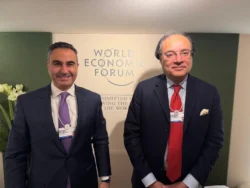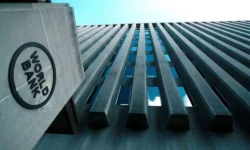Investment hurdles

28 April 2024
Published in: DAWN
“IN the realm of business, confidence is king.” This assertion by Apple CEO Tim Cook brings to light the crucial role that confidence in the legal/ judicial systems plays in fostering economic growth and attracting foreign investment. For Pakistan, as it teeters on the edge of securing a transformative investment of up to $25 billion from Saudi Arabia, the establishment of a robust and independent judicial system within the Special Investment Facilitation Council (SIFC) is pivotal. Despite scepticism from many economists about the SIFC’s ability to attract substantial foreign investment, this institution exists and must be leveraged to the fullest, even if it might not represent the concept of separation of powers envisaged in the Constitution.
The SIFC was established with the aim of boosting Pakistan’s investment appeal by streamlining processes and creating a business-friendly environment. However, to fully realise this potential, it is imperative that the SIFC adopt a robust legal framework inspired by global financial hubs like Abu Dhabi Global Market. As a financial free zone, ADGM operates with its own set of laws, offering a world-class legal system and regulatory regime. This independent framework is meticulously designed to foster economic activity by providing a secure, transparent, and efficient legal environment tailored for international investors.
For Pakistan’s SIFC to truly become effective in attracting foreign investment, it needs to establish its own sets of civil and commercial laws based on international standards. These laws must be enforced through special courts to ensure swift and reliable legal proceedings, thus echoing the exemplary practices seen in ADGM. This move would not only enhance the credibility of the economic environment but also ensure that legal proceedings are predictable and transparent, which are essential for building confidence among international investors.
The need for such a judicial overhaul in Pakistan is made urgent by the challenges faced by investors. These include prolonged litigation times, inconsistent judicial rulings, and a perceived susceptibility to external influences, all of which create an environment of uncertainty and risk. Such conditions are in stark contrast to the stable and predictable legal systems that characterise successful investment destinations globally. To highlight the urgency of these issues, my last article on these pages pointed to these judicial inefficiencies as significant hurdles to attracting foreign investment.
Our legal framework must meet foreign investors’ expectations.
Implementing a specialised court system within the SIFC, similar to those found in the ADGM, Singapore International Commercial Court (SICC) and Dubai International Financial Centre (DIFC), could radically transform Pakistan’s investment landscape. This would facilitate the effective resolution of disputes, a critical aspect for investors who prioritise efficiency and fiscal prudence.
Moreover, by customising the legal framework to specifically address the needs of foreign investors and the complexities of international business transactions, Pakistan could position itself as an appealing destination for global capital. Pakistan’s strategic location as a gateway to Central Asia offers unique geopolitical advantages that further its appeal as an investment destination. The proposed $25bn is a testament to the immense potential that awaits realisation, contingent upon essential reforms.
However, to capitalise on these advantages, Pakistan must ensure that its legal/ regulatory framework meets the expectations of foreign investors. This involves not only establishing an independent judiciary within the SIFC but also ensuring that this system is robust, accessible, and in line with international best practices.
It is important to acknowledge that Pakistan’s overall legal system and its somewhat archaic laws will take time to evolve and improve. The legal framework in many areas is burdened by inefficiencies and outdated regulations that do not meet the fast-paced demands of modern international commerce. In this context, establishing a specialised, independent judicial system along the lines of ADGM, SICC and DIFC is a pragmatic and strategic approach. This initiative can serve as a catalyst for broader legal reforms aligned with international standards.
By taking these steps, Pakistan will not only foster a favourable environment for foreign investment but will also reinforce the foundational principle that justice in governance is intrinsically linked to success in development. This is an opportunity for Pakistan to profoundly transform its economic landscape, ensuring that the judicial system within the SIFC becomes a beacon of integrity and efficiency that drives future prosperity.





